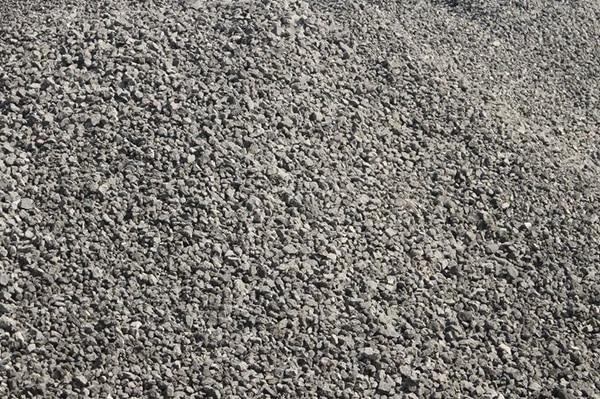Ground Granulated Blast Furnace Slag (GGBFS) is a finely ground material derived from the granulated byproduct of iron production in blast furnaces. When iron is produced, impurities in the molten ore form a liquid slag. This slag, rich in silica, alumina, and calcium, is rapidly cooled by quenching with water or air to form a glassy granular material. The granules are then dried and ground into a fine powder known as GGBFS. Its unique properties allow it to act as a supplementary cementitious material, combining with Portland cement to improve strength, durability, and sustainability in construction applications.
Production Process and Characteristics
The production of GGBFS begins in a blast furnace, where molten iron is separated from its impurities. These impurities rise to the surface, forming slag. To preserve its glassy structure and reactivity, the molten slag is rapidly cooled through a process called granulation. The cooled granules are then ground into a fine powder with specific properties tailored to meet construction standards.
GGBFS is chemically rich in silicates and calcium, which contribute to its ability to react with water and calcium hydroxide to form durable, cement-like compounds. Its physical properties, including its fine particle size and smooth texture, also enhance the workability of concrete mixes.
Grades of GGBFS and Industry Standards
GGBFS is categorized into three main grades—Grade 80, Grade 100, and Grade 120—based on its reactivity and performance in concrete. These classifications are defined by ASTM C989 in the United States and CSA A3001 in Canada, ensuring consistency and reliability across applications.
Grade 80
- Applications:
Grade 80 is the least reactive and is typically used in applications where lower strength development is required. - Performance:
Ideal for mass concrete structures such as dams, where reduced heat of hydration minimizes thermal cracking.
Grade 100
- Applications:
Grade 100 offers moderate reactivity and is suitable for general-purpose concrete and cementitious systems. - Performance:
Balances strength and durability, making it a versatile option for various construction projects.
| Color | Off White |
| Silicon Oxide (Si02) | 34.8% |
| Co0+Mg0+S 02 (%} | 91.6% |
| SO3 Content (%} | 0.11 ( 4% Max.) |
| (CaO + MgO) SiO2 | 1.4 |
| CaO / SiO2 | 1.2 |
| Fineness Retained on 45um sieve |
2.1% |
| Specific Grovity | 2.9 |
| Moisture (%) | 0.5 |
| Bulk Density | 1.1 |
| Surface Area (Blaine) Cm2/g | 4057 |
| Air Content of Slag Mortar (%) | 7.2 (12% Max.) |
Grade 120
- Applications:
The most reactive grade, Grade 120, is used in high-performance concrete where early strength and superior durability are essential. - Performance:
Provides excellent resistance to aggressive environments, such as marine structures and wastewater treatment plants.
The Role of GGBFS in Modern Construction
GGBFS has transformed the construction industry by addressing critical challenges like durability, sustainability, and cost-efficiency. Its incorporation into concrete reduces the material’s permeability, enhancing resistance to aggressive substances such as sulfates, chlorides, and alkali-silica reactions. Structures exposed to marine environments or industrial chemicals benefit significantly from these properties.
In terms of sustainability, GGBFS helps lower the carbon footprint of construction. By substituting a portion of Portland cement in concrete, GGBFS reduces the need for energy-intensive clinker production, which is a major contributor to CO₂ emissions. Additionally, its use promotes the recycling of industrial byproducts, diverting slag from landfills and contributing to a circular economy.
From a performance perspective, GGBFS contributes to the long-term strength of concrete while also improving its workability. The finer particle size of GGBFS allows for better blending in concrete mixes, creating a smoother consistency and easier placement. Moreover, its lower heat of hydration makes it ideal for large pours, reducing the risk of thermal cracking in massive structures like dams and bridges.
Applications in the Construction Industry
The versatility of GGBFS makes it suitable for a wide range of construction applications. In blended cements, it enhances the mechanical and chemical properties of the final product, offering improved strength and durability. Ready-mix concrete manufacturers frequently use GGBFS to produce high-quality concrete for infrastructure projects, residential buildings, and industrial facilities.
Precast concrete components, such as beams, panels, and columns, also benefit from GGBFS due to its ability to improve surface finish and reduce porosity. In marine construction, its resistance to chloride ingress and sulfate attack ensures the longevity of structures like piers, seawalls, and offshore platforms. Additionally, GGBFS plays a vital role in soil stabilization projects, where it helps improve load-bearing capacity and minimize settlement.
Compliance with ASTM C989 and CSA A3001 Standards
Quality assurance is paramount in the construction industry, and GGBFS is no exception. The ASTM C989 standard defines the performance requirements for GGBFS based on its slag activity index, which measures its contribution to the strength of hydraulic cement mortar. Similarly, CSA A3001 establishes chemical and physical benchmarks, ensuring that GGBFS meets the needs of diverse applications while maintaining environmental and structural integrity.
Environmental Benefits of GGBFS
The environmental advantages of GGBFS are a major driver of its adoption in the construction industry. As a recycled byproduct of iron production, GGBFS reduces industrial waste and conserves natural resources. Its use in cement production reduces the energy consumption and CO₂ emissions associated with clinker manufacturing, making it a key component in green building initiatives.
Moreover, GGBFS contributes to the durability of concrete, extending the lifespan of structures and reducing the need for frequent repairs or replacements. This not only conserves materials but also minimizes the environmental impact of construction over the long term.
Why Henan Superior Abrasives is Your Trusted Source for GGBFS
At Henan Superior Abrasives (HSA), we take pride in offering high-quality GGBFS that meets the stringent requirements of ASTM C989 and CSA A3001 standards. Our product range includes all three grades—Grade 80, Grade 100, and Grade 120—ensuring that we can cater to the specific needs of any project.
With a focus on innovation, sustainability, and customer satisfaction, HSA provides GGBFS that delivers exceptional performance in concrete and cement applications. Whether you are working on a large infrastructure project, marine construction, or general-purpose concrete, HSA has the expertise and resources to support your goals.
Contact us today to learn more or place an order.
- Email: sales@superior-abrasives.com
- WhatsApp: +86-18638638803





